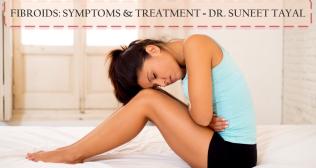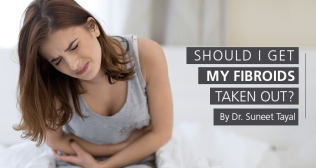Causes & Treatment Of Vaginal Dryness
What is Vaginal Dryness?
As the name suggests, Vaginal dryness can be described as a feeling of dryness in the vagina owing to the lack of mucous production. Levels of estrogen – better known as the female sex hormone – often fluctuate throughout the menstrual cycle and at various life stages. In addition, estrogen is in charge of lubricating the vagina and also responsible for maintaining a clean and healthy environment. When the levels of estrogen drop, vaginal dryness is the result.
Although usually characterized as a symptom of menopause, Vagina dryness – also known as atrophic vaginitis – is a common but treatable problem that can affect women of all ages and can occur at any time – before, during and after menopause. Here are some facts surrounding vaginal dryness.
- Around 40 percent of all post-menopausal women have reported vaginal dryness.
- Studies have revealed that around 17 percent of women falling the age group 18 to 50 will also experience vaginal dryness at some point.
- As per a survey conducted by leading market research company, One Poll, it has been revealed that four out of ten women suffer from this complaint.
Symptoms
Some of the symptoms responsible for vaginal dryness and the subsequent loss of elasticity are listed as under:
- Severe pain and discomfort at the time of intercourse accompanied by light bleeding
- Vaginal soreness, itching, or a burning sensation experienced inside the vagina
- Urinary incontinence
- More frequent bladder/ urinary tract infections
- Thinner vaginal lips (labia)
- Discomfort or burning with passing urine
- Thin, watery vaginal discharge
Causes
As briefly mentioned before, there are several factors which can impact vaginal dryness. Some of the common ones are listed below:
- Menopause as it makes the vagina feel drier than usual.
- At the time of childbirth or breastfeeding as hormone levels keep fluctuating at this time.
- Women who have had a hysterectomy.
- Women undergoing chemotherapy treatment.
- Women who consume anti-depressants, antihistamines, or similar medication.
- Anxiety and stress.
- Lack of arousal during foreplay or sex.
- Colds and medications can dehydrate an individual thus making the vagina feel drier when he/she is unwell.
- Use of perfumed products in or around your vagina, including regular soaps or harsh body washes. As a matter of fact, it’s been revealed that the use of shower gels and soaps in intimate areas put women at higher risk of developing sexually transmitted infections (STIs) as well.
- Women using the contraceptive pill or injections as it suppresses estrogen and testosterone.
- Smoking can lead to vaginal dryness as it destroys estrogen in the body.
Treatment
Vaginal dryness, if not treated, can affect an individual’s lifestyle, relationships, and/or sex life. Which is why it’s important to speak to a doctor for figuring out the best course of action and for getting the right treatment. However, many women are often embarrassed to report this glaring issue to their doctors. Fret not – the good news is that treatment for remedying vaginal dryness is generally quick, simple, and effective.
- Vaginal lubricants can make a world of difference for women afflicted with vaginal dryness as it lubricates the intimate area and protects from further irritation. There are numerous choices – water-based and silicone-based – that can cater to a person precise needs and preferences.
- Replacing harsh soaps and body washes that aggravate vaginal dryness is a step in the right direction. Instead, by opting for specially formulated products which are specifically designed to cleanse and protect the intimate area, one can get relief and much-needed respite from the discomfort associated with vaginal dryness.
- Ditching the vices such as smoking and/or any other factors which may be contributing to the dryness.
- Stress can be a major contributing factor to vaginal dryness as it’s known to interfere with the body’s sexual response cycle which, in turn, disrupts vaginal lubrication. Managing stress better by indulging in stress-reducing activities will surely help in that regard.
- Another way to relieve the discomfort associated with vaginal dryness is by using special moisturizers which get absorbed by the vagina thus making the tissue itself less dry. By making use of them on a regular basis, one can help moisturize and lubricate the vagina thus providing long-lasting relief.
- If the use of medications for cold, cough or allergies have led to dryness then once should try avoiding them. One can always have a word with their doctor about other options that might work for them.
- Staying hydrated by consuming at least 8-10 glasses of water on a daily basis while making a conscious attempt to reduce coffee and alcohol consumption is also a step in the right direction.
- Getting intimate and having intercourse on a regular basis is also a sure-shot way of increasing natural lubrication.
- Eating a healthy diet rich in omega-3 fatty acids and proteins such as flax seeds, fish such as salmon, mackerel and tuna, sunflower, pumpkin, and sesame seeds also aid in producing additional vaginal lubrication.
- Regular exercise helps in maintaining hormone balance while also helping promote blood flow to the nether regions. It does this by stimulating the adrenal glands and ovaries thus having a direct effect on vaginal dryness. Kegel and Pilates exercises, in particular, are a great way to keep dryness at bay.
- For women in the postmenopausal age group, there are several topical estrogen creams and/or pessaries that have been proven to ease vaginal dryness



















